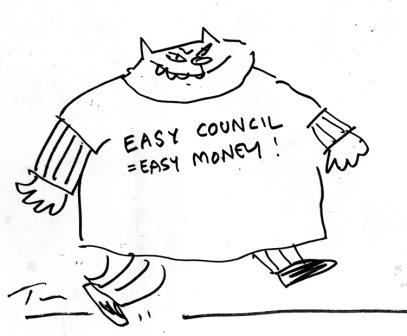Barnet UNISON Press Release: “Is there a future for Leisure Services in Barnet?”
11 NOVEMBER 2011- FOR IMMEDIATE RELEASE:
Barnet UNISON commissioned Professor Dexter Whitfield to produce a report on the Greenwich Leisure contract following the revelation in a report to Cabinet Resources 27 September 2011 that officers were seeking agreement to terminate the leisure contract with Greenwich Leisure.
Barnet Council commenced a 15-year Leisure Services partnership/contract (annual value £1.7m) with Greenwich Leisure Ltd (GLL) on 1 January 2003. On 27 September 2011 Cabinet Resources Committee agreed a recommendation to negotiate termination of the current leisure contract.
The Council agreed to conduct a review of Leisure services. However, the outcome could already be decided. Last week local politicians & LIBERTY director Shami Chakrabarti took part in a discussion with pupils from a North Finchley school about the current political system. A report in the local press quoted “Cllr Davey, cabinet member for housing, said: “My personal opinion is we shouldn’t have anything to do with leisure. People can walk or jog in the park for free.”
Apart from a real concern that these valued services could face closure as a result of the councils Leisure review, this is also a story of mismanagement of a single service contract that once again exposes the high-risk strategy and assumptions proposed by the One Barnet model. A council audit committee had previously identified serious weakness some of which remained unaddressed resulting in a ‘no assurance’ during a follow up review (Audit Committee, 21 June 2010).
This shocking revelation comes at the time where the Council is at the procurement stage of several multiservice, multi-million pound, long-term contracts that are up to 50 times the value of the leisure contract.
The UNISON report raises a number of critical key questions for Councillors:
1. Was there an expectation when the contract was set up that Greenwich Leisure would ensure adequate maintenance of the leisure facilities stock to last the lifetime of the contract?
2. Did GLL spend the allocated money on planned maintenance?
3. What was the annual cost of variation orders issued on this contract since January 2003?
4. Has this programme of work been audited and scrutinised?
5. If it was inadequate or ineffective, what remedial action was taken?
6. What is the current condition of the Council’s leisure facilities?
7. What has been the total cost of this contract to date?
John Burgess Barnet UNISON Branch Secretary said
“Quite frankly I am staggered at the content of the Council’s own reports. What is the point of making Audit recommendations if they are ignored? How many more times are we going to hear about contracts not being monitored properly, this is just more of the same issues raised in the Metpro Audit report earlier this year and further fuels fears about the One Barnet programme!”
GLL won the 2011 Social Enterprise Mark Holder of the Year from the Social Enterprise Coalition
Barnet UNISON is asking for the One Barnet Programme to be put on hold whilst meaningful talks with staff, trade unions and residents take place to look at alternatives to the One Barnet Programme.
End.
Contact: John Burgess Barnet UNISON on 07738389569 or email: john.burgess@barnetunison.org.uk
Background Information:
Barnet Easy Council gained notoriety in 2009 when they launched the budget airline model for public services. In 2010 the model was criticised in a report by the external auditors as having failed to draw up a proper business plan.
Useful Links
Barnet UNISON (2010) Briefing No. 7, The impact and performance of management buyouts, social enterprises and mutual models, March.
London Borough of Barnet (2004) Access to Leisure and Community Facilities, Report to Culture, Community Engagement, Equalities and Human Resources Overview and Scrutiny Committee, 15 December.
London Borough of Barnet (2009) 2009/10 Internal Audit Annual Plan, Report to Audit Committee, 10 March.
London Borough of Barnet (2010) Internal Audit Annual Report, Report to Audit Committee, 21 June.
London Borough of Barnet (2011) Leisure Contract Review, Report to Cabinet Resources Committee,
27 September; London Borough of Barnet (2011) Decisions of the Cabinet Resources Committee, 27 September.
London Borough of Barnet (2011) Audit Recommendations – 2009/10, Report to Audit Committee, 17 February


